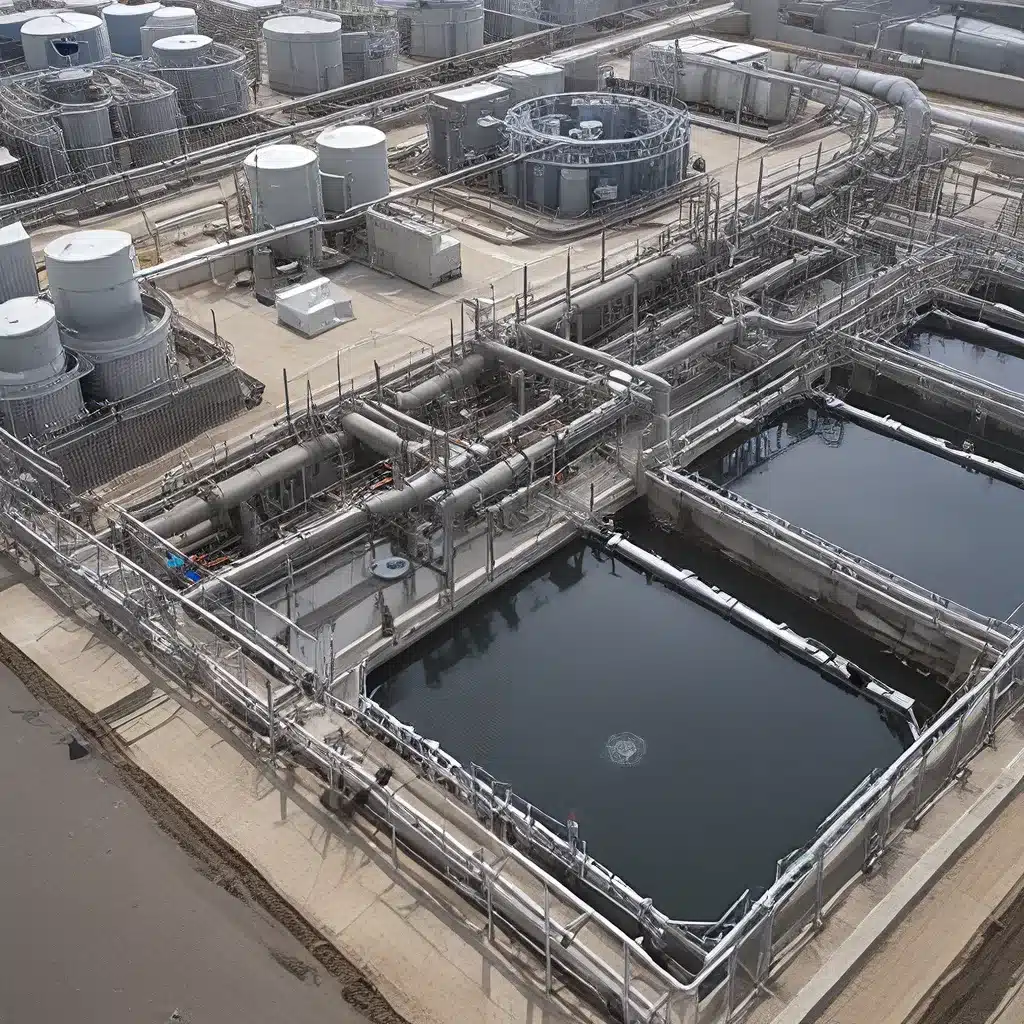
Diving into the Data-Driven Future of Wastewater Treatment
Picture this: a wastewater treatment plant that operates like a well-oiled, self-regulating machine. One where sensors continuously monitor every aspect of the process, from influent quality to energy consumption. Where advanced analytics crunch the mountains of data, identifying patterns and optimizing operations in real-time.
Sound futuristic? In reality, this vision is already taking shape, thanks to the convergence of the Internet of Things (IoT) and big data analytics. The wastewater treatment industry is undergoing a remarkable digital transformation, harnessing these cutting-edge technologies to revolutionize how we manage this precious resource.
As an environmental enthusiast, I’ve been fascinated by this evolution. So, let’s dive in and explore how IoT and big data are redefining the future of wastewater treatment.
Connecting the Pipes: IoT’s Role in Wastewater Monitoring
Imagine a network of smart sensors strategically placed throughout a wastewater treatment plant (WWTP). These IoT devices continuously collect real-time data on everything from flow rates and chemical compositions to equipment performance and energy consumption.
According to experts, the uptake of IoT in the wastewater sector is expected to skyrocket in the coming years. By 2024, these connected sensors will provide an unprecedented level of visibility into the treatment process, enabling operators to make informed, data-driven decisions.
Imagine being able to detect a sudden change in influent quality or a piece of equipment starting to malfunction – before it causes a disruption. With IoT, WWTP managers can act proactively, adjusting processes and optimizing resource use to maintain efficient, reliable operations.
But the benefits of IoT don’t stop at the plant’s boundaries. Leading experts argue that IoT can also help monitor the downstream wastewater network, detecting illegal discharges and mitigating their impact before they even reach the treatment facility. Talk about a game-changer!
Unlocking Insights with Big Data Analytics
While IoT provides the data, it’s big data analytics that truly unlocks the value. By collecting and analyzing vast amounts of historical and real-time information, WWTP operators can uncover hidden patterns, trends, and correlations.
Imagine being able to predict equipment failures before they happen. Or optimizing energy usage to reduce costs and carbon footprint. These are just a few of the ways big data is revolutionizing wastewater treatment.
Experts suggest that advanced analytics will be a key trend in 2024, with utilities harnessing the power of big data to monitor energy consumption, optimize treatment processes, and even explore water reuse possibilities.
But the real game-changer? Digital twins. These virtual replicas of physical WWTPs allow operators to simulate changes and test improvements before implementing them in the real world. Talk about a low-risk way to boost efficiency and sustainability!
Staying Ahead of the Curve: Embracing Digital Transformation
As the wastewater industry navigates this digital transformation, experts agree that a holistic approach is key. It’s not enough to simply bolt on new technologies; successful digital transformation requires a fundamental shift in mindset and operations.
Wastewater utilities must be willing to embrace change, explore new business models, and collaborate with tech-savvy partners. After all, the future of water management is inextricably linked to the digital world.
But the payoff is well worth it. By harnessing the power of IoT and big data, WWTPs can enhance their efficiency, reduce operating costs, and minimize their environmental impact – all while providing a higher quality of treated water to their communities.
So, as you navigate the ever-evolving landscape of wastewater treatment, remember: the key to unlocking a more sustainable, data-driven future lies in your willingness to embrace the digital revolution.
Ready to dive in? Join me on this exciting journey as we explore the cutting edge of wastewater management, right here at Inland Waters Inc.


